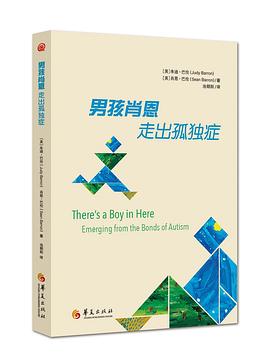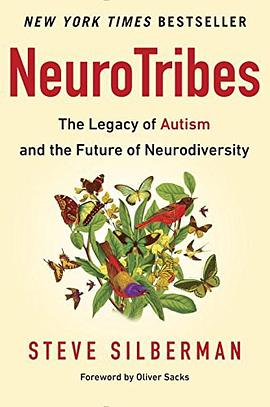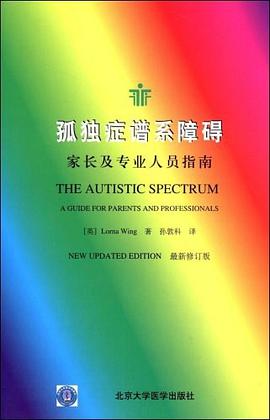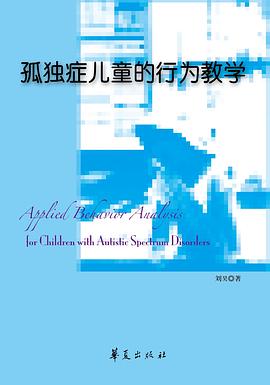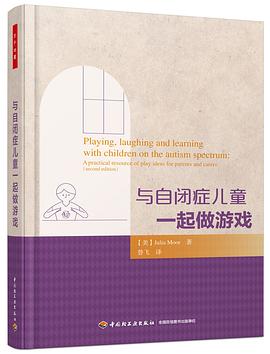

具体描述
I don't know if people will ever be able to talk to animals the way Doctor Doolittle could, or whether animals will be able to talk back. Maybe science will have something to say about that. But I do know people can learn to "talk" to animals, and to hear what animals have to say, better than they do now. --From Animals in Translation
Why would a cow lick a tractor? Why are collies getting dumber? Why do dolphins sometimes kill for fun? How can a parrot learn to spell? How did wolves teach man to evolve? Temple Grandin draws upon a long, distinguished career as an animal scientist and her own experiences with autism to deliver an extraordinary message about how animals act, think, and feel. She has a perspective like that of no other expert in the field, which allows her to offer unparalleled observations and groundbreaking ideas.
People with autism can often think the way animals think, putting them in the perfect position to translate "animal talk." Grandin is a faithful guide into their world, exploring animal pain, fear, aggression, love, friendship, communication, learning, and, yes, even animal genius. The sweep of Animals in Translation is immense and will forever change the way we think about animals.
*includes a Behavior and Training Troubleshooting Guide Among its provocative ideas, the book:
argues that language is not a requirement for consciousness--and that animals do have consciousness applies the autism theory of "hyper-specificity" to animals, showing that animals and autistic people are so sensitive to detail that they "can't see the forest for the trees"--a talent as well as a "deficit" explores the "interpreter" in the normal human brain that filters out detail, leaving people blind to much of the reality that surrounds them--a reality animals and autistic people see, sometimes all too clearlyexplains how animals have "superhuman" skills: animals have animal geniuscompares animals to autistic savants, declaring that animals may in fact be autistic savants, with special forms of genius that normal people do not possess and sometimes cannot even see examines how humans and animals use their emotions to think, to decide, and even to predict the future reveals the remarkable abilities of handicapped people and animals maintains that the single worst thing you can do to an animal is to make it feel afraid
作者简介
目录信息
读后感
移动互联网已经成为了一个庞然大物,PC时代所没有达成的事情、被手机达成了,而在国内的移动互联网应用中,手握10亿用户的有且只有一个,就是微信。标题的这句话正是微信的缔造者——张小龙在微信上线2天后的凌晨2点,于早已过气的饭否上敲下来的。 而标题的这句话也以另一种...
评分文/宝木笑 不知从何时开始,人类研究心理学的过程中开始充满着动物们的身影,动物们除了要满足人们的捕猎欲、口舌欲、观赏欲等之外,还要成为人们的实验品。心理学史上从来不缺少“明星”,比如巴甫洛夫的狗、斯金纳的鸽子、托尔曼的老鼠等等。小时候我们在生物课上就学到过巴...
评分人类由于自身特性及文化影响容易太沉溺抽象思维,太过抽象化,现在有必要往形象化偏一点。 形象思维:身体力行、身临其境,去看去听,去感知。 动物思考是更具象化,缺乏归纳,更真实的反应世界,容易发现差异,但较难找到事物的联系。 人类思考抽象化、概念化,过度归纳,生活...
评分希望看了我的笔记,你也和我一样觉得这是一本有趣的书 -大象用人类听不到的声波互传信息,跺脚也是一种传递方式 -选择单性状繁殖会让公鸡变成强奸犯 -中国的猪比美国的猪更热衷做那种事,一有机会就会实施。和现实中的人刚好相反,看来在性方面,中国的猪还是为国争了光 -...
评分偶然在图书馆注意到这本书,是因为看了部有关本书作者的电影——《自闭历程》。而之所以,会再次关注,很大成分上,自己也算半个自闭症患者。从喜欢村上的文学,到了解什么是“亚斯伯格症候群”,以及自闭者的表现,让我从自我认识的内向转变为自闭症患者。 自闭症应该算在心...
用户评价
帮助我们更深刻的理解动物的行为及想法,也帮助我们了解自闭症患者。
评分论自闭症患者和动物的思考方式与普通人的不同~不要以己度人,不要以为动物的想法跟你一样。动物有很多本能,遇到合适的信号就会触发。动物的大脑神经连接简单,所以他们的想法也简单,没有那么复杂的情感,所以不会得抑郁症,也不容易出毛病。
评分又读一遍 做幸福的动物其实也挺难的
评分大可不以autistic person的角度来看temple,某种意义上,在他们的世界里,或会比我们更专注于某些人与事,temple只不过是其中最为成功、出类拔萃的一个,这样可能就不难解释她会成为一名如此出色的animal scientist。相对于自负浮夸喜怒无常奸险野蛮功利的人类而言,与动物的沟通很简单,且有着友善的互动与交流。Temple Grandin的成长历程是一次很好的启发,先看她的自传电影,再看这本书吧。都很好。
评分确实满满都是干货,但过去这么久了,感觉人对动物还是缺少认识和尊重。
相关图书
本站所有内容均为互联网搜索引擎提供的公开搜索信息,本站不存储任何数据与内容,任何内容与数据均与本站无关,如有需要请联系相关搜索引擎包括但不限于百度,google,bing,sogou 等
© 2025 book.wenda123.org All Rights Reserved. 图书目录大全 版权所有




